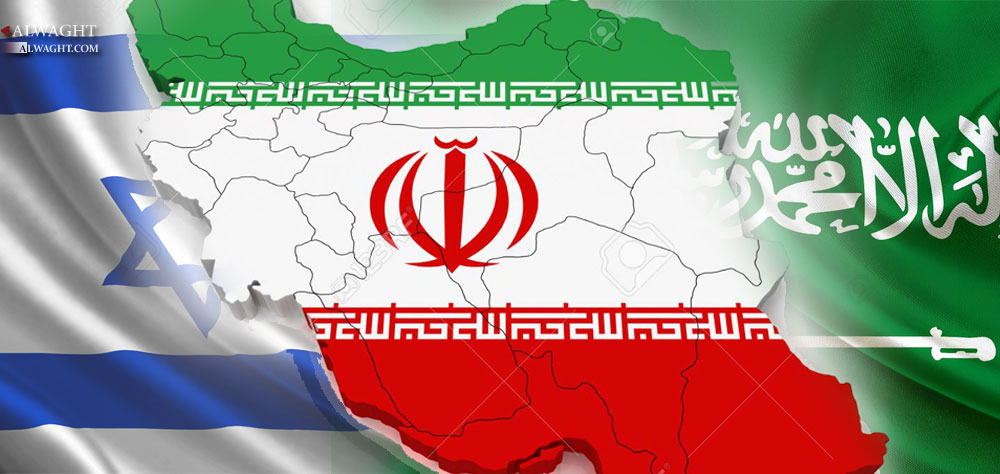Alwaght- The Israeli media and officials, including the transportation and intelligence Minister Yisrael Katz, in past few days have called on the Arab countries to normalize diplomatic relations with the Israeli regime.
Addressing the Herzliya Conference last week, Katz highlighted the need for expansion of regional cooperation between Tel Aviv and the Arab states.
The analysts cite different reasons behind the current push for Arab-Israeli normalization, including the very recent changes taken place in the Saudi Arabian ruling body.
The reshuffling in the top ranks of power inside Saudi Arabia may decline to effectively address the demands for political changes and reforms at home that will lead to political and social openness, but it sure will continue to unprecedentedly alter the foreign policy of the kingdom, particularly its regional policy, as part of the systematic political transformation process began since 2015 when King Salman replaced the late King Abdullah bin Abdulaziz.
After decades-long conservatism, Saudi Arabia has shifted to aggressive regional policies, with the direct military action against the neighboring Yemen marking official start of such approach, and also involvement in tough regional competition with Iran in West Asia crises like Syria, Iraq, Lebanon, and Afghanistan signaling continuation of such approach. All these engagements came by the Saudi rulers for weathering the sweeping social and political changes in the region after the Arab uprisings of 2011.
As part of efforts to limit the expanding Iranian influence in the region, Saudi Arabia in recent years began overt struggles to build a diplomatic bridge between the Arab countries and the Israeli regime. The exchange of visits to Riyadh and Tel Aviv by the Israeli and Saudi officials was disclosed for the first time in 2016 summer, during which Anwar Eshki, the former Saudi intelligence general, visited Tel Aviv and held talks with the Israeli officials. A string of visits to Riyadh by Israeli figures were reported following Eshki Tel Aviv trip.
The Saudi rulers' strategy is clear: building an Arab-Israeli front against Tehran’s political strategy that revolves around supporting resistant movements in the region that seek confronting the Western influence in general and curbing the Israeli regime's anti-Palestinian violations in particular. Such pro-resistance policy by Iran well provides the Islamic Republic's ideology with grounds for spreading among the Islamic and Arab nations, beside helping Iran hold considerable regional sway.
Last week, the Saudi king issued a royal decree removing Muhammed bin Nayef as crown prince and installing his son Mohamed bin Salman, the former deputy crown prince, as first heir to throne. Promotion to crown prince of bin Salman, the young defense minister who is seen as the top foreign policy maker of Saudi Arabia in the present time and the main drive behind the aggression against Yemen and severing of diplomatic relations with Iran, is regarded as an attempt to unify the decision-making mechanisms through ousting the rivals and opponents inside the ruling orbit.
Introduction of such changes to Saudi power structure following presidency of President Donald Trump of the US, a leader with resolve to lead a full-scale confrontation campaign against Iran in support of the Israeli regime, provided facilitation to rise of a new alliance in the region, featuring the Arab governments and Tel Aviv for the final intention of constraining the power of Iran-led Axis of Resistance.
Saudi Arabia has undertaken role of a linking ring of such alliance. The same role was once played by Egypt under Hosni Mubarak, after toppling of whom the West picked a new actor: Saudi Arabia.
A fortnight ago and just days after Trump’s visit to the region, Saudi-led Arab states of the Persian Gulf cut ties with Qatar along with imposing a blockade on Doha from air, sea, and ground. They then set conditions for restoring ties, including a demand from Doha to sever relations with Tehran. The analysts interpreted the Arab escalation against Qatar as an effort to assemble the hard puzzle of Israeli-Arab alliance.
Accordingly, the US, Israeli regime, and the despotic Arab regimes, topped by Saudi Arabia, have reached the consensus that they need to punish Doha whose support for the popular uprisings with the Muslim Brotherhood in center across the region can set up roadblocks ahead of the US-intended regional peace process as well as Arab-Israeli normalization.
The overhaul of power structure in Saudi Arabia, which raised bin Salman to be a de facto ruler of the kingdom, can prompt enhanced Saudi-Israeli relations for regional collaboration the outcome of which will be serving Israeli security and countering what they call Iran’s threats. Such a partnership, largely addressing Israeli and Western objectives, is believed to carry potentials for triggering further instability and crises in the region, with the regional nations, particularly Palestine, sustaining the biggest damage.



























